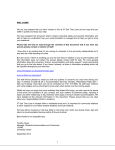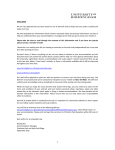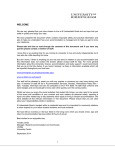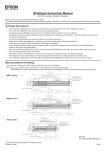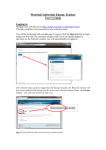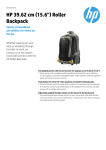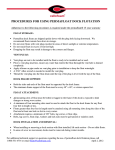Download Heating - Cumbria Business Environment Network
Transcript
Cumbria Business Environment Network Best Practice Guide No 4 in a series of simple guides highlighting best practice opportunities identified by CBEN. Heating FACT: Heating and Hot Water can typically account for up to 60% of a business’s energy use (Carbon Trust figures). 30% of this cost can be saved through good heating management. FACT: Lowering room temperatures by 1oC, can reduce your annual heating bill by 8-10%. FACT: There are currently around three and a half million homes in England with the very least efficient type of boiler (G-rated or worse) - this means they are less than 70% efficient. TOP TIPS FOR ENERGY EFFICIENT HEATING Check the efficiency of your boiler. Boilers have an A to G rating, just like many other electrical appliances, upgrading an inefficient boiler could reduce your energy consumption by as much as 25%. You can find out your boilers efficiency rating from the user manual or from www.boiler.co.uk If you have radiators fit Thermostatic Radiator Valves (TRV’s). These will enable you to turn heating down in rooms that aren’t being used and automatically control heating to desired levels. For bigger buildings consider zoned heating systems with different time and temperature settings as appropriate. Lag all accessible pipes, pay particular attention to pipes in plant rooms and boiler rooms, pipe lagging will usually have a payback period of around 12 months. Make sure that valves and flanges are lagged as well as the pipe work. Work to raise staff awareness of heat loss from opening windows and doors, encourage staff to turn heating down before opening windows and draw blinds at night to retain heat. If you have air conditioning, check that the air conditioning thermostats are set above those of the heating thermostats ( a minimum of 4˚ centigrade). Otherwise the 2 systems will be working against each other. If you use small amounts of hot water in areas that are a long distance from the hot water storage tank consider installing electric point of use hot water heaters. This will save the drawing of a large amount of water in the pipes before the hot water starts coming out the tap. Where possible install additional insulation to maximise heat retention. Insulate lofts and walls, and carry out basic draught proofing. When insulating always seek advice on air movement and building breathability to avoid creating damp spots and condensation. Fit simple reflective panels behind any radiators situated on external walls. When installing any new radiators, try where possible to site them on internal walls. They are a cost effective way of saving around 5-15% of your heating bills. When carrying out upgrades and boiler replacements consider low carbon alternatives. Investigate systems such as solar thermal, ground and air source heat pumps, biomass boilers etc. If installing hot water storage systems, future proof the system by considering additions of renewable technology. A good plumber should be able to advise on this. Useful websites www.carbontrust.co.uk Interest free loans for energy saving projects and publications to help you choose efficient heating systems. www.eca.gov.uk Information and financial support via enhanced capital allowances www.energysavingtrust.org.uk variety of energy saving information and tips



